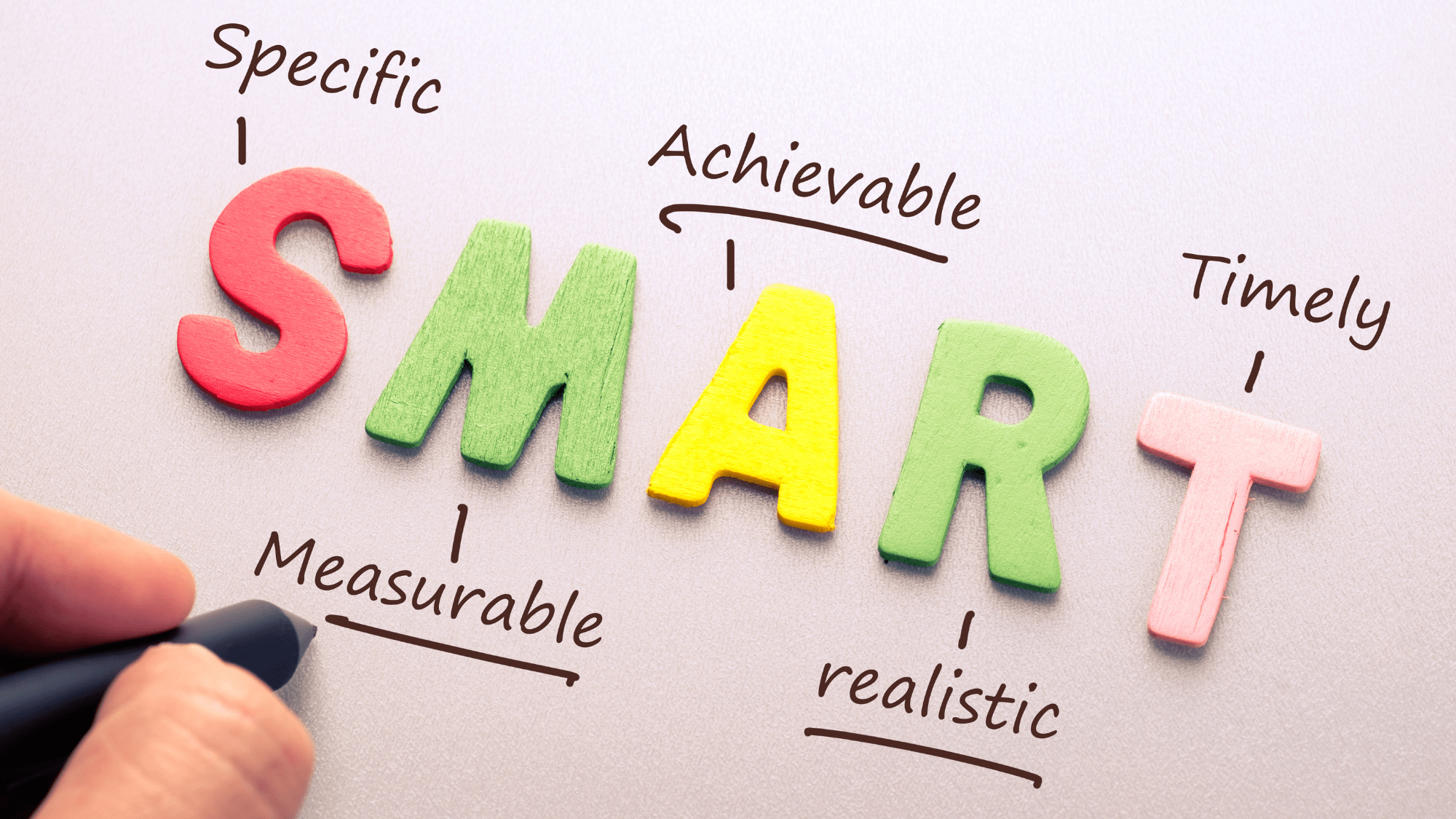The 7 Career Development Strategies for Professional Growth


Table of Contents
In today’s fast-paced and ever-evolving professional landscape, achieving career success requires more than just hard work and talent; it calls for strategic planning and deliberate action. Understanding and implementing effective career development strategies is vital for anyone looking to climb the ladder of professional achievement.
By embracing a suite of strategies and career success techniques, you can proactively manage your career trajectory, keep pace with industry developments, and set yourself up for long-lasting success.
So whether you’re starting out or aiming to reach new professional heights, let’s explore the proven strategies that can transform your aspirations into reality.
Key Takeaways
- Proactive career management is crucial for long-term success.
- Strategic career development and new skills are essential a competitive job market.
- Adopting career advancement tips can lead to better job opportunities.
- Incorporating effective career success techniques is necessary for upward mobility.
- Staying responsive to industry developments ensures career resilience and aligns with the growth and development of your career goals.
Identify Your Unique Value Proposition
In today’s dynamic workforce, carving out a distinct niche with value proposition and forming a career strategy is a vital step.
Understanding what sets you apart, embracing new challenges, and learning how to leverage your strengths can propel your career forward.
Assessing Your Strengths and Weaknesses
Self-awareness is the cornerstone of personal growth strategies and an essential factor in developing a career strategy.
By identifying your core strengths and acknowledging areas for improvement, you can tailor your career path to best suit your competencies.
This level of introspection serves as a critical guide in making informed career decisions that align with your aspirations.
Building a Personal Brand
In the realm of professional development tips, building a powerful personal brand is irreplaceable. It’s about more than just a resume; it’s cultivating an identity that encapsulates your professional ethos, skills, and experiences.
Your personal brand, honed through experience and acts as a beacon to potential employers and clients, signaling your unique offerings and professional ethos.
Setting Yourself Apart from the Competition
With the myriad of career growth techniques available, learning how to distinguish yourself is key.
Whether it’s through continuous skill development, thought leadership, or networking, standing out in a sea of professionals is about consistently delivering value.
This value must resonate with your industry and align with the market need.

Mastering the Art of Networking
Effective networking, a strategy that is a vital step in achieving professional goals, is a cornerstone of career planning tactics, forming a foundation upon which opportunities for growth can be laid. career development is built.
By cultivating a robust professional network, individuals can unlock new opportunities for advancement and techniques that may otherwise remain inaccessible.
Networking is not just about collecting contacts; it’s about planting relational seeds that can sprout into beneficial partnerships, mentorships, and pathways to success.
Creating Meaningful Professional Relationships
Joining professional networks like Simply Agile can foster meaningful professional relationships. These alliances contributing to your career strategy are not just useful for immediate objectives but can contribute significantly to long-term career growth.
The benefits are clear: expanded access to industry insights, increased referrals, and heightened credibility. Through genuine interactions and mutual support, strong professional bonds become an investment in one’s career vitality.
Utilizing Social Media as a Networking Tool
In today’s digital landscape, platforms like LinkedIn are instrumental in extending one’s professional reach. Social media offers a dynamic environment to not only connect with peers but also to showcase expertise, contribute to industry conversations and advance your career.
By actively engaging on these platforms, professionals can significantly enhance their visibility and establish themselves as thought leaders in their respective fields.
Networking Strategies for Introverts
Networking doesn’t come naturally for everyone, and for introverts, this can be a new challenge they need to conquer. However, by leveraging strategies tailored to their strengths like one-on-one meetings or smaller, focused groups, introverts can form quality connections that are more in line with their comfort zone.
Quality trumps quantity when it comes to building a network that is both authentic and enriching, aligning with personal career development for meaningful connections.
Embrace Lifelong Learning
The fast-paced work environments of today demand that individuals adopt job progression methods that not only place them on a trajectory towards success but also keep them there.
One such indispensable strategy is embracing lifelong learning, a cornerstone for career growth techniques and personal growth strategies alike.
In an age where industries evolve rapidly, the ongoing acquisition of knowledge and the refinement of skills serve as the currency for maintaining professional relevance.
Lifelong learning goes beyond formal education, it encapsulates a mindset of continuous intellectual development and curiosity that paves the way for innovative thinking and the discovery of new job opportunities.
It involves a spectrum of activities—from attending development programs and conferences, to actively seeking mentorship, to engaging with online educational content, and even self-study.
Whether it’s learning a new software, mastering a foreign language, or developing soft skills, each step taken is a step towards enriching your professional portfolio and furthering your career path.
Not only does this mindset facilitate personal empowerment and confidence, but it also aligns with the overarching goal of staying ahead in a constantly changing job market.
By prioritizing personal growth strategies and setting career goals, you invest in the most important asset you have—yourself.
Thus, creating a mosaic of experiences and proficiencies that showcases your dedication to excellence and distinguishes you within your field.
Curious what the most in-demand jobs will be in 2030 and beyond? Read our post.
Career Development Strategies in the Digital Age
Embracing innovative tactics has become paramount. The advent of technology and the internet has revolutionized how we approach personal growth strategies and advancement tips.
This section delves into the practical and strategic ways individuals can harness digital resources to propel their career trajectories forward.
Leveraging Online Courses and Webinars
With the widespread availability of online courses and webinars, accessing education has never been more convenient.
Massive Open Online Courses (MOOCs) from renowned universities and institutions offer a wealth of knowledge across various fields, providing opportunities for skill enhancement and personal development.
By integrating these resources into your career growth techniques and career strategy, you can acquire new competencies or polish existing ones, ensuring you remain competitive in a dynamic job market.
Staying Up-to-Date with Industry Trends
The digital era demands continuous adaptation to shifting industry trends. To stay ahead, one must engage in active research and utilize digital platforms that provide insights into upcoming market changes.
Subscribing to industry newsletters, following thought leaders on social media, and participating in relevant forums can enrich your understanding and prepare you to adapt your career path efficiently.
Utilizing Technology to Enhance Skills
In this digital age, technology is not only a tool for everyday tasks but also a means of accelerating professional growth. Whether it’s mastering a new software, adopting productivity apps, or exploring innovative platforms, leveraging technology can significantly streamline work processes.
Embracing these tools can lead to improved efficiency, heightened productivity, and ultimately, a stronger case for career advancement.

Strategic Career Planning and Goal Setting
Strategic career planning and goal setting are not merely buzzwords, but essential career success techniques. Articulate planning grounds your aspirations, turning lofty dreams into attainable realities.
Whether you’re a recent graduate or seasoned professional, a clear roadmap with short-term and long-term objectives can propel you from where you are today to where you envisage being tomorrow.
Job progression methods often emphasize setting SMART goals—Specific, Measurable, Achievable, Relevant, and Time-bound. By creating a comprehensive action plan that includes these elements, you’re more likely to stay focused and motivated.
Remember, these goals, like your accumulated new skills, should not be set in stone in your developing career strategy. As industries evolve and personal circumstances change, revisiting and adjusting your goals is a crucial professional development tip.
Achieving career success is not just about reaching a destination; it’s also about the milestones along the way. By setting and celebrating measurable milestones, you build momentum and gain the confidence needed to tackle more significant challenges.
At the very core of strategic career planning lies the agility to adapt. As you ascend the ladder of success, continuation to align your goals with both personal and industry shifts is a testament to your commitment to perpetual growth and achievement.
Unlock Job Market Secrets: Stay Ahead of the Curve
Join hundreds of other career focused professionals and get the latest job openings, insider tips, and career-transforming advice delivered straight to your inbox.
Effective Communication and Interpersonal Skills
The ability to communicate effectively and exhibit robust interpersonal skills is not just desirable but essential for career progression.
These competencies are often at the core of brilliant career growth techniques and are integral to holistic development strategies.
Whether you’re aiming to secure a leadership role or collaborate effectively as part of a team, your interpersonal skills and readiness for new challenges can set you apart.
How then does one improve these integral skills?
Active Listening
Begin by actively listening, a fundamental aspect of communication that involves not just hearing, but also understanding the conveyed message.
This fosters trust and respect among colleagues, paving the way for open and efficient dialogue.
Refining your non-verbal cues such as eye contact, facial expressions, and posture can significantly support the verbal message and help to convey your point with clarity and confidence.
Conflict Resolution
Conflict resolution is another area where interpersonal prowess is vital.
Approaching disagreements with patience and an open mind encourages a constructive exchange of ideas, reducing the impact of potential conflicts on work relations and productivity.
Feedback
Providing and receiving feedback with grace is the sign of a mature professional who values growth and collaboration over ego.
Lastly, remember that interpersonal skills extend beyond the office; networking events and social gatherings are opportunities to practice and polish your ability to connect with others.
Adopting these development strategies can lead to healthier professional relationships, better teamwork, and ultimately, a more fulfilling career trajectory.
It’s a continuous journey, but the rewards of implementing strategies for career advancement, are numerous and make a significant impact on your career.

Crafting a Winning Resume and Cover Letter
Embarking on the journey of career planning tactics, prospective job applicants are often faced with the challenge of setting themselves apart through their initial job application documents.
Understanding that a resume and cover letter are the front-line soldiers in the battle for advancement, it is critical to tailor and refine these documents to align perfectly with the job at hand.
This not only demonstrates your awareness of the job’s intricacies but also shows a thoughtful approach to your job progression methods.
Tailoring Your Application to the Job Description
Employers seek candidates who not only possess the necessary qualifications but also those who showcase an understanding of the role’s specific needs.
By meticulously articulating how your background aligns with each stipulated requirement of the job description, you set the foundation for a tailored application.
This personalized approach is a reflection of your dedication and propensity for detail—qualities that are beneficial in any professional environment.
Highlighting Achievements and Quantifiable Results
Your career narrative should be replete with milestones that have quantitative significance.
Employers cherish the ability to foresee how your past successes can be indicative of future results.
Therefore, illuminating your career chronicle with achievements backed by data reinforces your value proposition, positioning you as a compelling candidate for career growth and job progression.
Writing a Compelling Personal Introduction
The introductory portion of your cover letter is more than a greeting—it is an unmissable opportunity to forge a personal connection with your potential employer.
A compelling introduction can captivate attention and differentiate you from the sea of applicants.
As you construct this crucial segment, infuse it with your personality and professional ethos, bridging the gap between being a name on a page and an unforgettable candidate.
Conclusion
In navigating the complexities of today’s professional landscape, the application of targeted career development strategies Developing a career strategy is not just advisable, it’s essential.
We have journeyed through a variety of development programs and strategies to help advance your career.
Each designed to foster growth, enhance skills, and maximize potential through development programs.
From the articulation of a unique value proposition to the continuous pursuit of knowledge, these tools are the building blocks of a prosperous career.
Remember, the art of professional advancement requires a commitment to strategic planning, goal-setting, and an unwavering desire for personal and professional growth.
Whether it’s through fortifying your networking abilities, leveraging digital resources for learning, or refining your communication talents, each strategy presents an opportunity to sharpen your competitive edge in the job market.
As you move forward, let these insights serve as beacons guiding your path to success.
Integrate these approaches and strategies for career advancement into your career ethos to not only achieve, but exceed professional goals.
Whether you’re planting the seeds for future opportunities or nurturing an already flourishing career, rest assured that these strategies can lead to a lifetime of fulfilling work and recognition within your field.
The 5 P’s of career development are Purpose, Planning, Preparation, Professionalism, and Persistence. These elements represent key aspects in managing and advancing one’s career: identifying goals (Purpose), strategizing steps (Planning), acquiring skills and knowledge (Preparation), maintaining ethical and professional standards (Professionalism), and consistently working towards objectives despite challenges (Persistence).
A career path strategy is a planned approach to career development, where an individual sets career goals and outlines steps to achieve them. This strategy involves identifying desired career outcomes, understanding the skills and experiences required to reach these goals, and planning actions to acquire necessary qualifications and positions.
A career development framework is a structured approach to managing and guiding an individual’s career progression. It typically involves assessment tools, skill development plans, and career pathways that align with an organization’s needs and the individual’s career aspirations. This framework helps in identifying opportunities for growth and development within a career.
The 3 E’s of career development are Education, Experience, and Exposure. ‘Education’ refers to formal and informal learning, ‘Experience’ encompasses hands-on practice and roles undertaken, and ‘Exposure’ involves networking, mentorships, and visibility in one’s field. Together, they form a comprehensive approach to advancing in one’s career.







Thanks for sharing. Valuable insights on strategic career development. The emphasis on personal brand, networking, and continuous learning aligns with a proactive approach.
Appreciate the practical tips, especially for introverts in networking.